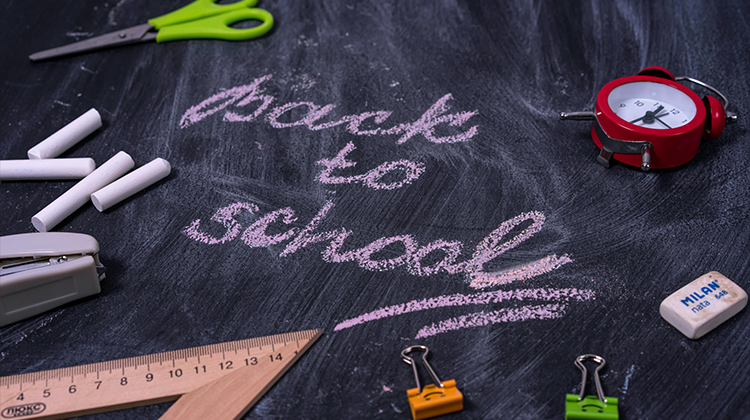We are in the midst of school season. It's been a month since schools have started and it is also one of the busiest seasons across the globe: vacations are over, everyone is back to work, and roads are jammed.
Going to school is fun. You meet new friends. You learn new things. You enroll in different extracurricular activities.
In this article today, I will share with you 10 back-to-school vocabularies.
1. “Il primo giorno di scuola è sempre inutile.” - the first day of school is always useless
Don't you agree that the first day of school is pretty useless? It is a global fact that the first day of school can be skipped and the above sentence expresses it well.
If you want to skip the first day of the lessons and stay home, then feel free to use the above.
2.“La ricreazione e’ alle 10:30” - the break time is at 10:30 AM
“La ricreazione” is a word that can mean many things. It can mean break time, playtime, or relaxation time. In Italy, in every single school, it is very common to say “la ricreazione” when professors and students take a break. During this break, which typically lasts between 15 to 20 minutes, students eat a quick snack, chit-chat for a few minutes, and then get back to classes
3.“Ho tanti compiti da fare” - I have a lot of homework to do.
Compiti is the word that translates to homework. In Italy, every single student right after school has “compiti” to do. You can only go out and play with your friends after you are done with your “compiti”
4.“L’anno scolatisco inizia a settembre” - the school calendar starts in September.
“L’anno scolatisco” doesn’t translate to the school calendar. In this case, “anno” means year. However, the best way to translate “l’anno scolatisco” is school calendar. In Italy, the school calendar goes from mid-September until the beginning of June, to then have 3 months of summer holidays.
5.“L’anno scorso sono stato bocciato” - Last year I have failed the year.
“Bocciare” means to fail. However, in this particular instance, it means to fail multiple classes.
When a student tells you “sono stato bocciato”, it means that he/she is repeating the whole year. It is not just about failing a course only, but it is about failing many classes, and in this situation, the students are forced to repeat the whole year before moving into the next year.
6.“Domani abbiamo la classe di educazione fisica” - Tomorrow, we have the course of gym
“Educazione fisica” in English is translated to physical education which is the gym course that the school curriculum offers. “Educazione fisica” is the formal way of expressing gym. The class itself consists of learning about the human body, and sports, and during this class, you learn the theory and practice sports.
7. “Pranzero’ nella mensa scolastica” - I will lunch in the school canteen.
“Mensa scolastica” is directly translated to the school canteen. Typically in the canteen, you can bring your lunch or get the lunch provided by the school. Depending on what grade you are in, lunch is typically included in the school fees. Although you are not paying anything at the moment, it is something you have already paid
8. “La campenella suona alle 8:30” - The bell rings at 8:30 AM
In Italy, when it is time to go inside your class, it will be typically marked by the sound of the bell. The bell rings when classes start and finish.
“La campanella” comes from the word - “campana” which means bell. Campana is the bigger bell, the one you see in the church, and campanella is the smaller one that you have in your school building.
9. “Prendo nota dei compiti nel mio diario di scuola” - I take note of my homework in the school diary
“Diario di scuola” is your planner, agenda, or school diary. This is where you take notes of every single thing that your professors tell you, whether it is homework or exam dates.
In Italy, school diaries are usually bought and not given for free by your institution
10. “Domani facciamo una gita scolastica”- Tomorrow, we will go to a school trip
“Gita scholastica” is the school trip that the school organizes. It is typically a day trip and usually one goes outside of the city. These school trips are usually educational. You are typically taken to a different city, to museums, archeological places, or even historical places.
Another way of saying that you are going on a school trip is also “domani andiamo in gita” which means going on a school trip.
A lot of Italian expressions when it comes back to school vocabulary do not reassemble at all any English words. The above expressions are very specific to the Italian language and by learning these 10 expressions, you will also learn something new about the Italian school culture.







